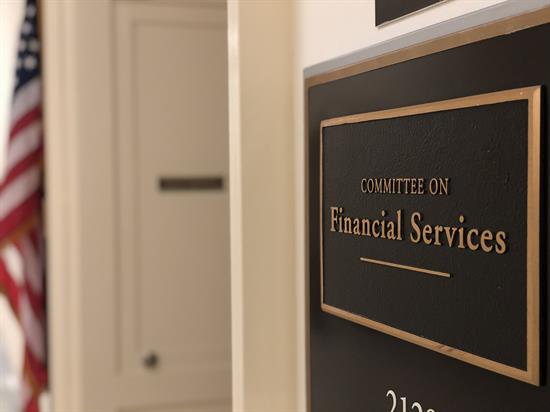House Panel Approves Bill Overhauling Federal Flood InsuranceBy: Lalita Clozel, The Wall Street Journal
Washington,
June 12, 2019
Bipartisan bill aims to spur private flood insurance and lower costs for lower-income homeowners
The bill, approved unanimously Wednesday by the House Financial Services Committee, aims to change the financial stakes that people in flood-prone areas face when shopping for insurance. The Midwest has been hit particularly hard by flooding this spring, as several states in the Farm Belt suffer from the wettest year on record. The legislation seeks to spur private flood insurance and reduce costs for lower-income policyholders. It also would require the government to make sure more properties that need coverage are identified on updated flood-zone maps. The plan backed by Democrats and Republicans on the committee would extend the National Flood Insurance Program for another five years. It now goes to the full House and must also pass the Senate. The program has operated since 2017 under a series of temporary extensions passed by Congress, the latest of which ends in September. “This has put our communities and housing market at risk,” House Financial Services Committee Chairwoman Maxine Waters (D., Calif.) said. “We’ve worked very hard to give consideration to the concerns on both sides of the aisle.” The spring 2019 outlook from the National Oceanic and Atmospheric Administration contained a warning: portions of the Midwest were due for major flooding. WSJ talks with a National Weather Service representative to learn what’s behind the prediction. Photo: Getty Images Rep. Patrick McHenry (R., N.C.) said the bill will “not only provide long-term certainty to [federal flood insurance] but will modernize the program to ensure it has the tools it needs to perform its functions.” Federal flood insurance, offered through the Federal Emergency Management Agency, was created more than 50 years ago because private insurers were unwilling to risk catastrophic flood losses. Recent extreme weather events such as Hurricanes Harvey, Irma and Maria in 2017 put so much financial pressure on the program that Congress took the unprecedented step of canceling its debt, writing off $16 billion that year. The flood program had $20.5 billion in debt as of September 2018. The bill doesn’t forgive any additional debt, a move Ms. Waters had championed. But it could be the first step by Congress to overhaul flood insurance and provide a longer-term extension for the program—two measures that have eluded lawmakers since 2012. The deal would create a pilot program that provides discounts for premium rates paid by low-income households, ensuring they don’t exceed 2% of the local median income. The bill also would end surcharges enacted by Congress in 2014, including premium increases of $250 for vacation homes. It would appropriate $500 million in annual funding for flood-zone mapping and expand mapping to all areas of the U.S. FEMA would be required to use new mapping technologies, such as a pulsed laser-based method called Lidar, or light detection and ranging. In a move that could give private flood insurers a boost, the plan would allow property owners to switch between public and private flood insurance without losing subsidies available to them under the federal plan. For instance, property owners would be able to reinstate lower rates that were locked in when the government said they were subject to higher flood risk. They could also get reimbursed for overlapping public coverage held while they switch over to a private plan. The bill is the latest move by policy makers to jump start a private market for flood insurance. Banking regulators earlier this year said lenders as of July must accept private flood-insurance policies, in addition to the government-backed program. The bill’s prospects are uncertain in the Senate, where Republicans and Democrats have panned it. Republican senators from Louisiana—Bill Cassidy and John Kennedy—said it doesn’t go far enough to cut costs for policyholders. Mr. Cassidy in a statement said it “lacks reforms needed to ensure the program is sustainable and that families won’t be hit with drastic premium increases.” |


